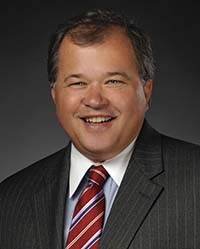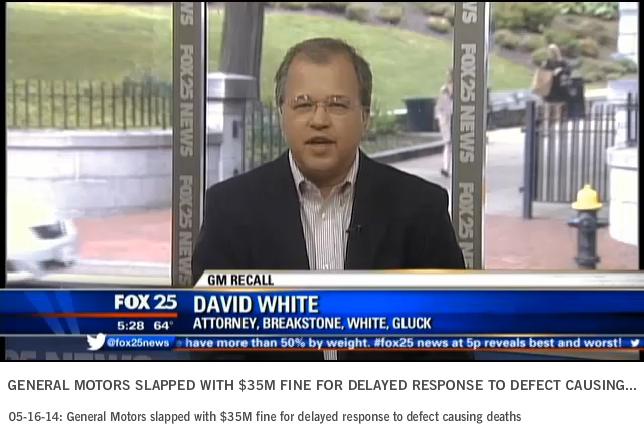Posts Tagged ‘“Boston wrongful death attorneys”’
Attorney David W. White Interviewed About Future of Civil Lawsuits Following Aaron Hernandez Suicide
 The Metro news website interviewed Attorney David W. White and other legal experts in the wake of Aaron Hernandez’ suicide at Souza Baranowski Correctional Center in Shirley, Massachusetts this week. Hernandez, a former New England Patriot who once received a $40 million contract extension for five years, had been serving a life sentence in the 2013 murder of Odin Lloyd. As prosecutors prepared the Odin Lloyd case, they also charged Hernandez with a double murder in Boston in 2012. Hernandez was acquitted on the Boston murder charges just last week in Suffolk Superior Court. As he headed back to prison, his lawyer spoke about hopes for appealing the Odin Lloyd conviction and seeing Hernandez walk free someday.
The Metro news website interviewed Attorney David W. White and other legal experts in the wake of Aaron Hernandez’ suicide at Souza Baranowski Correctional Center in Shirley, Massachusetts this week. Hernandez, a former New England Patriot who once received a $40 million contract extension for five years, had been serving a life sentence in the 2013 murder of Odin Lloyd. As prosecutors prepared the Odin Lloyd case, they also charged Hernandez with a double murder in Boston in 2012. Hernandez was acquitted on the Boston murder charges just last week in Suffolk Superior Court. As he headed back to prison, his lawyer spoke about hopes for appealing the Odin Lloyd conviction and seeing Hernandez walk free someday.
But Hernandez apparently had no plans for appeal. Come Wednesday morning, he was found hanging from a bed sheet in his cell at the Shirley prison. The state medical examiner concluded the cause of death was suicide by asphyxia from hanging. The football player’s brain will be sent to Boston University researchers who are studying CTE, or Chronic Traumatic Encephalopathy, a progressive degenerative disease of the brain which can only be diagnosed after death. It has been found in other football players.
The suicide changes everything for Odin Lloyd’s family, who was pursuing a wrongful death lawsuit against Hernandez.
During a 2015 trial, Hernandez had been convicted of the first degree murder of Lloyd. Hernandez had an automatic right to appeal to the state’s highest court, the Supreme Judicial Court, but had not completed that appeal. Massachusetts follows a legal doctrine known as abatement ab inito. If someone dies after a conviction but before their appeal is complete, the person’s legal records and convictions are null and void.
“Now that the conviction will be vacated, the family of Odin Lloyd has lost their collateral estoppel claim and they will have to start from scratch to prove he is guilty,” White said in the Metro interview.
Hernandez appeared to have a bright future with the Patriots, then came June 26, 2013. Police arrested him at his North Attleborough home in connection with the murder of Odin Lloyd, a semi-professional football player who had been dating the sister of Hernandez’ fiancee. Less than two hours later, Hernandez was released by the New England Patriots, who had signed him to the $40 million five-year contract extension the previous summer. The contract included a $12.5 million signing bonus. On August 27, 2012, The Boston Globe predicted, “The Patriots are going to have the tight end of duo of Rob Gronkowski and Aaron Hernandez at least through the 2018 season.”
General Motors’ $35 Million Fine Starts Years of Investigations, Wrongful Death Lawsuits
General Motors (GM) has been fined $35 million for waiting a decade to recall vehicles with faulty ignition switches. The defects have now been linked to 13 deaths.
Attorney David White of Breakstone, White & Gluck appeared on Fox 25 TV in Boston last week to discuss the fine, GM’s recent bankruptcy proceedings and his thoughts about handling recall notices.

This is an important topic because we have seen many auto recalls in recent years, but 2014 may set the record, according to this Los Angeles Times article.
White said the fine is the first step in a long process ahead.
“Really this is just a slap on the wrist for the corporation,” White said. “It’s a civil fine. It’s the maximum civil fine that they could be exposed to at this point, but GM is looking at years of investigation and probably… maybe even billions of dollars of fines down the road.”
The federal government is sending a strong message that companies need to act within 5 days of learning of safety defects, as required by law, White said.
“Hopefully other automakers get this message and they tune into the need for greater safety, greater attention to safety,” he said. “When they do find a defect, they come right out and say here’s our defect, here’s our concern so consumers can get notice of it promptly and get it fixed.”
Read More

